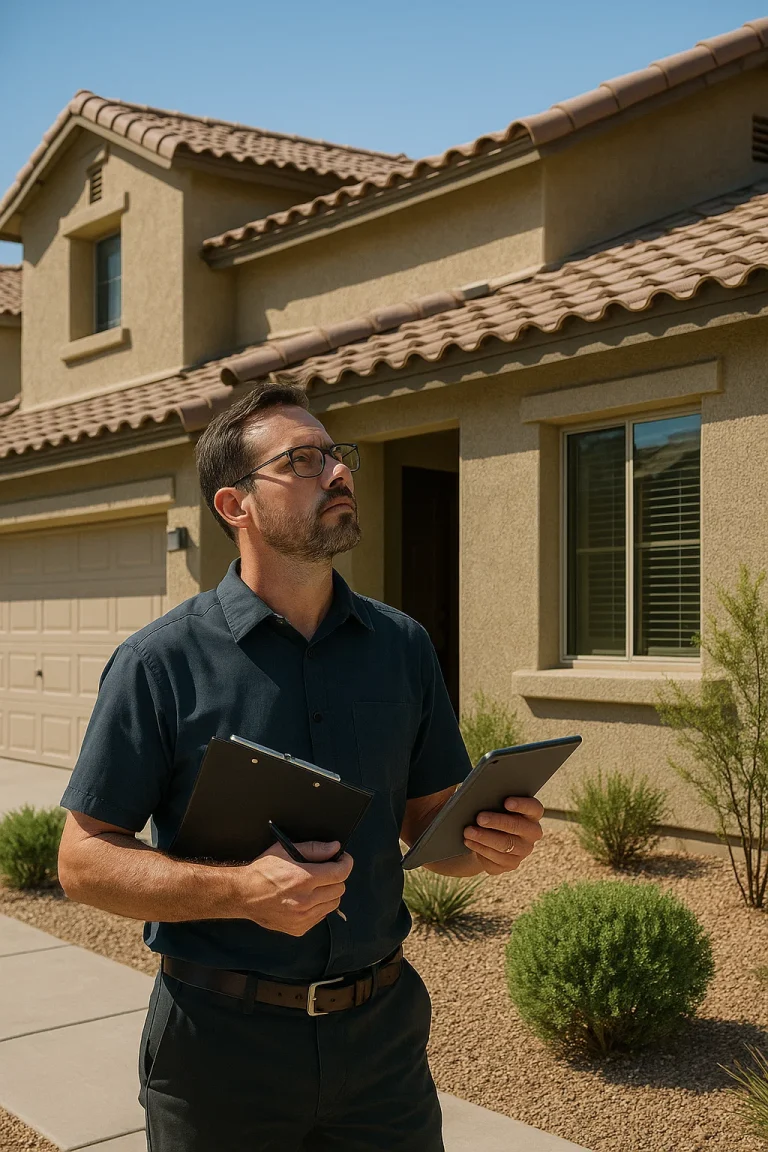Can I Contest Or Appeal An Appraisal In Gilbert If I Disagree?
 Every homeowner in Gilbert, Arizona is keenly aware of the impact a top real estate appraisal in Gilbert can have — whether it’s tied to selling your home, refinancing, settling an estate, or navigating a divorce. An appraisal assigns value to your property, and that value can affect taxes, negotiations, and even family outcomes. What happens when you believe the number on your report doesn’t reflect reality?
Every homeowner in Gilbert, Arizona is keenly aware of the impact a top real estate appraisal in Gilbert can have — whether it’s tied to selling your home, refinancing, settling an estate, or navigating a divorce. An appraisal assigns value to your property, and that value can affect taxes, negotiations, and even family outcomes. What happens when you believe the number on your report doesn’t reflect reality?
Contesting or appealing a property appraisal isn’t a rare scenario. In fact, the unpredictability of the real estate market, combined with the human element of appraisal, means disputes occur regularly. Yet, most homeowners don’t know what specific steps to take or how much power they have. This guide — tailored for Gilbert residents and curated by Eagle Home Appraisal Gilbert — details everything you need to know to challenge or appeal a property appraisal, ensuring you’re equipped to protect your investment, equity, and peace of mind.
Understanding Appraisal Disputes in Gilbert
Appraisals are a professional assessment of your property’s value. In Gilbert, appraisals influence mortgages, property taxes, estate planning, divorces, and more. An appraiser relies on local market conditions, recent comparable sales (“comps”), the property’s condition, features, and sometimes subjective judgment.
Why Disputes Happen
Appraisal disputes often stem from:
- Inaccurate property data (wrong square footage, rooms, or improvements)
- Poor choice of comps (nearby distressed sales or non-similar properties)
- Unrecognized market shifts, such as new neighborhood demand
- Neglected major upgrades or renovations
- Subjective adjustment errors
For instance, a new roof or energy-efficient upgrades may be undervalued, or sales from a distant, lower-priced subdivision may skew your property’s worth.
Legal Framework
Gilbert lies in Maricopa County, where property tax appraisals follow Arizona Revised Statute Title 42. Appraisal appeals must be filed within strict deadlines and through specific county or state channels. Homeowners can contest both county tax assessments and private lender appraisals, though the procedures differ.
Financial Consequences
An undervalued appraisal from Gilbert’s real estate appraiser can mean thousands lost on a sale or overpaid in taxes. It can derail mortgage approvals or leave homeowners on the losing end of a divorce or inheritance. Understanding why disputes arise is the first step to a successful challenge.
Key takeaway: It’s common — and legitimate — to contest an appraisal if you suspect errors or unfair valuation. A methodical, evidence-based approach is essential.
Examining Your Appraisal Report
Before contesting an appraisal, you must grasp its structure and locate possible errors.
Anatomy of the Report
Most appraisal reports contain:
- Property Description: Size, rooms, lot, upgrades.
- Comparable Sales Analysis: Local similar properties, adjustments.
- Market Condition Statement: Recent trends and activity.
- Photographs and Maps: Visual confirmation of features and location.
What to Watch For
- Square Footage & Features: Does your report accurately reflect home and lot size? Check for inaccurate bedroom/bath counts or missed features (like solar panels).
- Comps: Are the compared sales recent (ideally within six months and nearby)? Outdated or far-flung comps can distort value.
- Condition & Upgrades: Have renovations, new appliances, or new landscaping been noted and properly credited?
- Market Trends: Does the report mention rising local prices, or has it ignored signs of a hot sellers’ market?
How Errors Occur
Appraisers may use old MLS data, rely on incomplete public records, or miss subtle home enhancements that matter in a competitive market. In Gilbert, rapid development and unique subdivisions mean comps can vary dramatically — a misapplied adjustment by even 5–10% is common.
Practical Step
Use a checklist. Go line by line, comparing the report against actual property documents (plans, permits, sales records). If discrepancies emerge, highlight them for your appeal.
Gathering Evidence: The Foundation of a Successful Appeal
A winning appraisal appeal rests on strong, well-organized evidence.
What to Collect
- Recent local sales data: Use Maricopa County public records, the MLS, or online platforms. Focus on similar size, age, and upgrades within 0.5–1 mile.
- Documented improvements: Permits for remodels, receipts for upgrades, before/after photos. Prove the real impact of your investments.
- Blueprints and property surveys: Resolve square footage disputes, clarify boundaries and features.
- Market analyses: Get written statements from licensed realtors, homebuilders, or independent appraisers who know the current Gilbert market.
- Second independent appraisal: Commission a new professional report, especially for high-value or complex claims.
How to Organize
Create a binder — physical or digital — containing:
- Cover sheet summarizing your dispute
- Chronological records of transactions and improvements
- Comparative market data sheets
- Photos and official documents
Label everything. Make your case easy for a reviewer to follow.
Gilbert-Specific Tips
- Request recent zoning maps or HOA documents if applicable.
- Get letters from neighbors or community leaders about unique property factors (unusual views, private access, etc.).
- For new builds, include builder documentation to correct any errors in year or quality of construction.
Key tip: Appeals that succeed are built on facts, not feelings.
The Formal Dispute Process: Petitioning the County Assessor
When your dispute concerns property tax appraisal in Maricopa County (including Gilbert), the formal process begins with filing a Petition for Review of Valuation (AZDOR Form 82130R).
Step-by-Step Example
- Timeline: For tax year 2026 (as of August 2025), the deadline is usually late April of the preceding year (e.g., April 22, 2025).
- Access the Portal: Visit Maricopa County Assessor’s official website. Register for online filing or download form for mail/in-person submission.
- Complete the Form: Clearly state which value or classification you’re contesting (Full Cash Value, Limited Property Value, etc.).
- Attach Supporting Documents: Include your evidence binder. Highlight recent sales, photos, and appraisals.
- Statement of Facts: Summarize the discrepancies you found and cite each type of supporting evidence.
- Submit: Online is fastest; otherwise, send by mail or bring to 301 W Jefferson St, Phoenix, AZ.
What Happens Next
The County Assessor reviews your petition, and may request additional info, offer an informal meeting, or make a decision based on your documentation.
Pro-tip: Keep copies and request confirmation of receipt. Missing the deadline voids your appeal rights for that cycle.
Appealing for Factual Errors or Misclassification
Some disputes aren’t about value — they’re about mistakes in the property’s basic description or category.
Common Factual Errors
- Wrong physical attributes (lot size, year built, number of rooms)
- Incorrect property type (classified as “vacant land” instead of “residential”)
- Ownership or occupancy mislabeling (primary residence vs. rental)
Notice of Claim Process
Arizona law provides the “Notice of Claim” process for factual errors. You may file this form:
- If there’s a mistake in reporting for the current or previous three years
- Anytime you discover a misclassification (no fixed annual deadline)
Essential Evidence
- Government-issued documents or utility bills for occupancy
- Permits, blueprints, or builder’s certs for physical changes
- Photographic evidence
- Driver’s license or voter registration for primary residence claims
Gilbert Example
Suppose your home is mistakenly coded as “vacant.” A Notice of Claim supported by recent utility bills, driver’s license, and tax documents proves residency, resulting in correction and sometimes a property tax refund.
Tip: Factual corrections can directly increase your valuation or trigger refunds retroactively.
What Happens After Your Appeal: County Assessor’s Decision
Once you submit a formal petition or Notice of Claim, the County Assessor reviews your case.
The Assessment
- Initial Review: The Assessor compares your evidence to existing records. They may reach out for clarification or request an informal meeting.
- Possible Outcomes:
- Valuation adjustment: Your new evidence is accepted, and your property value changes.
- Classification correction: Your claim about property use or features is validated.
- Denial: If the Assessor finds insufficient support, your appeal is rejected.
What To Do Next
- If accepted, you’ll receive a written notice, possibly followed by a new tax statement and refund.
- If denied, you can escalate the dispute to the State Board of Equalization (SBOE), typically within 25 days of receiving the decision.
Informal Meetings
Many disputes are resolved at this stage, especially when homeowners present clear, respectful documentation. Meetings provide a chance to clarify misunderstandings and avoid escalation.
Timeline
Most reviews are completed in 2–8 weeks, though complex cases can take longer.
Key tip: Stay proactive — maintain records of all communications and submissions.
The Role of the State Board of Equalization and Tax Court
If your appeal is denied by the County Assessor, you have the right to escalate.
State Board of Equalization (SBOE)
- Filing: Submit the appeal (typically online or via mail) within the deadline after Assessor’s decision.
- Hearing: Both you and the Assessor present evidence before a panel. It’s less formal than court but follows procedures similar to small claims hearings.
- Decision: The SBOE issues a final determination within 30–60 days.
Arizona Tax Court
For high-value or especially contentious claims, you may advance your case to Arizona Superior Court’s Tax Division.
- Eligibility: For disputes above $2million or those unresolved after SBOE process.
- Filing Deadline: Usually within 60days of SBOE ruling, or by December 15th of the valuation year if skipping administrative steps.
- Process: Both parties present comprehensive documentation, witness testimony, and legal arguments. A judge reviews all evidence and issues a binding ruling.
Practical Considerations
- Cost: SBOE appeals are free, but court proceedings may involve costs and attorney’s fees.
- Timeline: SBOE can resolve appeals in 1–2 months; Tax Court cases often stretch over several months to more than a year.
- Expert Witnesses: In complex cases, consider hiring Eagle Home Appraisal Gilbert as an expert witness to strengthen your claim and clarify technical arguments.
Key point: Escalation is a right — and sometimes necessary for fair results — but is best reserved for high-value or complex disputes.
Contesting Appraisal in Divorce, Estate, and IRS Cases
Appraisal disputes can be central to major life events and legal actions.
Divorce
Gilbert homeowners frequently face disagreements over property value when dividing assets. Court-ordered appraisals must be unbiased and USPAP-compliant. Often, both spouses hire independent appraisers. If unable to agree, the court mandates a third-party valuation.
- Tip: For stronger results, use appraisers with legal testimony experience (like Eagle Home Appraisal Gilbert) and ensure inclusion of all improvements and fair comps.
Estate Planning & Probate
Accurate appraisals are crucial for dividing inheritances and establishing tax liabilities.
- Common challenges: Outdated appraisals, missed improvements, or incomplete documentation.
- Resolution: Contest with new notarized appraisals that factor in current market trends and all upgrades.
IRS Disputes
Inherited or gifted property values impact federal capital gains and estate taxes.
- Requirement: Appraisals must comply with IRS regulations and include comprehensive supporting documentation.
- Appeal route: File amended appraisals and supporting market data to the IRS and, if necessary, present in federal Tax Court.
Local Context
Gilbert’s growth and luxury developments mean estate and divorce appraisals can be particularly nuanced. Select an appraiser who knows the area’s subdivisions and market patterns for the strongest case.
Key tip: Legal/financial outcomes hinge on the precision and credibility of your appraisal — fight for accuracy.
Best Practices for Navigating Appraisal Disputes in Gilbert
Winning an appraisal appeal takes preparation, professionalism, and strategic communication.
Steps to Success
- Act Immediately: Mark your calendar with all county and state deadlines.
- Organize Evidence: Use labeled binders or digital folders for documents, photos, statements, and receipts. Prepare a summary sheet for quick reference.
- Communicate Respectfully: All interactions — in person or written — should be concise, courteous, and focused on facts.
- Anticipate Counterarguments: Prepare for pushback by collecting additional data or obtaining third-party appraiser opinions.
- Leverage Technology: Use mapping tools to highlight location advantages, graphic market trend presentations, and online sales data.
Working with Professionals
Hiring a local expert like Eagle Home Appraisal Gilbert can make a substantial difference:
- Experienced appraisers know which local comps hold weight.
- They can provide legal testimony, defend their valuation, and spot procedural mistakes.
- For complex cases, consult a real estate attorney who knows Gilbert/Maricopa County protocols.
Pro-Tips
- Keep all records for at least three years (per Arizona law).
- Document all communications — emails, phone calls, meetings.
- Learn from peers: Seek out community forums or social media groups for firsthand stories and recommendations.
Key reminder: Professional presentation and factual evidence are respected by county officials and courts.
Frequently Asked Questions About Appraisal Appeals
Can I order another appraisal?
Yes — and it’s often the best way to dispute the original value. A second, independent appraisal can tip the scales and expose errors or omissions in the initial report.
What if my appraisal affects my property taxes?
Appeal through Maricopa County Assessor. If successful, you can lower your taxes and in some cases get refunds for overpayment.
Are there fees?
Administrative appeals (Assessor, SBOE) are usually free. Legal (court) appeals may involve attorney’s fees and filing costs.
How long does it take?
County appeals: 2–8 weeks. SBOE: 1–2 months. Tax Court: Several months to a year, depending on complexity.
Can appraisal values change during the process?
Yes — if new, legitimate evidence is presented, your valuation or classification could be adjusted at any time prior to a final decision.
Does my mortgage lender care?
Absolutely. For mortgage or refinance appraisals, lenders may require a formal “reconsideration of value,” which works similarly to a county petition but follows their own protocols.
Will this impact my home’s sale price?
It can. If you prove the appraiser made a mistake and the value is adjusted upward, this can help future negotiations and prevent financing shortfalls for buyers.
How do I get started?
Start by reading your appraisal report carefully, identifying any discrepancies, and building an evidence file. Reach out to Eagle Home Appraisal Gilbert for expert guidance and a second opinion.
Key tip: Appeals are a right, not an inconvenience. Stand up for your property’s true value.
Conclusion
Appraisals shape the financial and legal life of every property in Gilbert, Arizona. While most are accurate, mistakes and misjudgments are not uncommon — and you do not need to accept them. By understanding the process, building strong evidence, respecting deadlines, and working with professionals like Eagle Home Appraisal Gilbert, you can confidently contest or appeal a property appraisal and protect your financial well-being.
Navigate county and state channels methodically, keep all documentation organized, and present facts with professionalism. Whether your dispute involves property taxes, a mortgage refinance, divorce, or estate closure, remember: accurate valuation isn’t just about money — it’s about fairness, equity, and your financial future.
For expert appraisals, legal testimony, and guidance through complex appeals, contact Eagle Home Appraisal Gilbert. Their local expertise, commitment to transparency, and experience in even the most nuanced disputes set them apart as your trusted partner in property valuation.
Next Up: Some property valuations can surprise homeowners in a good way. In our next post, we’ll explore Why Might an Appraisal in Gilbert Come in Higher Than the Asking Price? and what factors contribute to this positive outcome.
Divorce Appraisals
At Eagle Home Appraisal Gilbert, we specialize in providing expert divorce appraiser services, offering expert witness testimony when necessary.
Estate & Trust Appraisals
At Eagle Home Appraisal Gilbert, we offer a comprehensive range of professional estate appraisal services to facilitate estate and trust planning.
IRS & Tax Appraisals
At Eagle Home Appraisal Gilbert, we specialize in providing professional IRS tax appraisal services to minimize capital gains on inherited property.
Real Estate Appraisal
Eagle Home Appraisal is a group of independent fee appraisers committed to delivering competent, credible, and reliable appraisal reports.
Eagle Home Appraisal Services Near Me
Comprehensive Property Appraisals
Expert Witness Testimony
Fair Market Value Assessments
Rapid Turnaround Times
Customized Solutions
Contact Eagle Home Appraisal Today
For more information about our services, get in touch with Eagle Home Appraisal. Our team is dedicated to providing the best customer service, ensuring all your appraisal needs are met with professionalism and expertise. Contact us today to learn more about how we can assist you.
Get A Free Consultation

copyright @2025 all rights reserved | Privacy-policy



